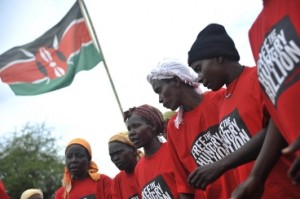
The East African | Monday, October 4 2010
Is it “land grab” or appropriate agricultural investments?
That is the question hanging over the recent phenomenon of countries from the Middle East and Western corporations acquiring huge chunks of rich farmlands in Africa to grow food for export.
The farmland acquisition has been decried by civil society as a “land grab” that threatens Africa’s food security, livelihood and identity, but governments term it as agricultural investments.
Since the 2008 food crisis, external governments have increasingly turned to Africa to acquire a total of 2,492,684ha of land in Ethiopia, Sudan, Ghana, Madagascar and Mali.
This worrying trend informed the EAC food security strategy that advises partner states to “resist leasing or selling large chunks of land to foreign entities for food production or bio-fuels solely for export,” which would affect food security in the region.
African countries like Egypt and Libya have also shown interest in acquiring rich farmlands in the region for growing food for their people.
The 2008 economic crisis coupled with the global food crisis triggered the proliferation of farming land acquisition in East Africa in Kenya, Tanzania, Uganda, Ethiopia and Sudan.
Lack of investments, poor farm policies and low land exploitation are worsening the food security of the East African population.
The Friedrich-Ebert Stiftung Foundation recently organised a regional conference on food security in East Africa in Nairobi. The conference deliberated on the implication and impact of foreign trade investment in agriculture on food security in the region.
In Kenya, the Tana River Delta and the Coast in general have been the main target, raising questions where the local communities will get alternative land for agricultural activities to become self-sufficient in food.
In the Tana River Delta, 40,000 hectares has been leased to the Qatari government, 16,000ha to Mumias Sugar for sugar plantations and agro-fuels, 50,000ha to a foreign firm for bio-fuels.
In Nyanza, over 17,500 hectares around Yala Swamp has been leased to a US firm, Dominion Farm Ltd to produce rice.
In Tanzania, 500,500ha has been leased to a foreign firm to produce rice, wheat, coffee, flowers, Aloe Vera and bio-fuels.
Uganda has leased 840,127ha to Egypt to grow rice, wheat and produce organic beef. Ethiopia, on the other hand has given out 600,000ha to foreign entities, which FAO estimates to be four per cent of the fertile land.










